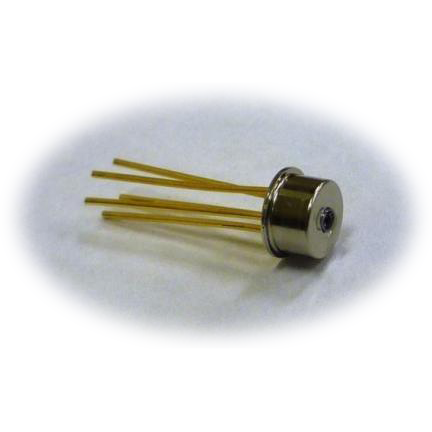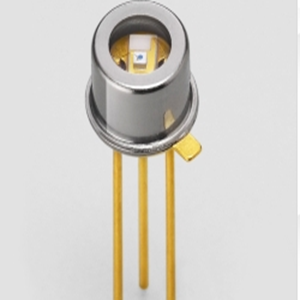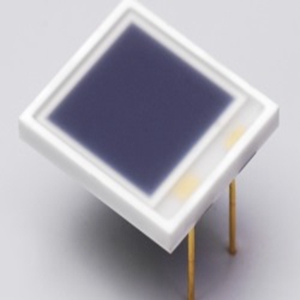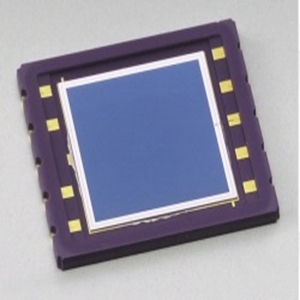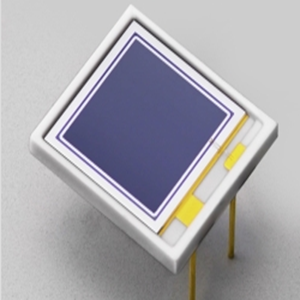Description
Photodiode with TIA and Optical BPF Filter 800nm-900nm .
Wavelength range: 800 – 900 nm
Active Area:≥ 4.5mm Dia
Responsivity (@ 850nm with Filter):≥ 0.5 A/W
Dark Current (-10V):≤ 0.5 nA
Package:TO Package
Max. Reverse Voltage:≥ 25 V
Operating temperature:0 to +55 °C
Storage Temperature:0 to +60 °C
Supply voltage:≤ ±15V
Quiescent Supply Current (±15V):≤ 3 mA
Input offset Voltage:≤ 0.5 mV
Gain Bandwidth Product:≥ 5 MHz
Open loop gain:≥ 200 V/mV
Input noise Voltage density (@100Hz):≤ 20 nV/Hz0.5
Input noise Voltage density (@1KHz):≤ 15 nV/Hz0.5
Input noise current density (@1KHz):≤ 10 fA/Hz0.5
Transmission @AOI=0ᵒ, 800-900nm:>90%
Blocking @AOI=0ᵒ, 350-750nm & 950-1100nm:≤0.1% (OD3)
Full Width Half Maximum (FWHM) @ AOI=0ᵒ:100nm ± 10nm
Center Wavelength:850nm ± 10nm
The use of TIAs in photo sensing circuits, Photodiode with TIA
Photo sensing circuits such as transimpedance amplifiers (TIAs) are useful in precision systems such as computed tomography (CT) scanners, blood analyzers, and smoke detectors. Other uses for light-to-voltage conversions are with position sensors, infrared (IR) pyrometers, and chromatographs. In these circuits, photodiodes generate a small current, which is proportional to the level of illumination.
The TIA converts the photodiode’s current output signal to a usable voltage level. The implementation of this current-to-voltage conversion consists of a photodiode, an amplifier and a resistor/capacitor feedback pair (Figure 1).
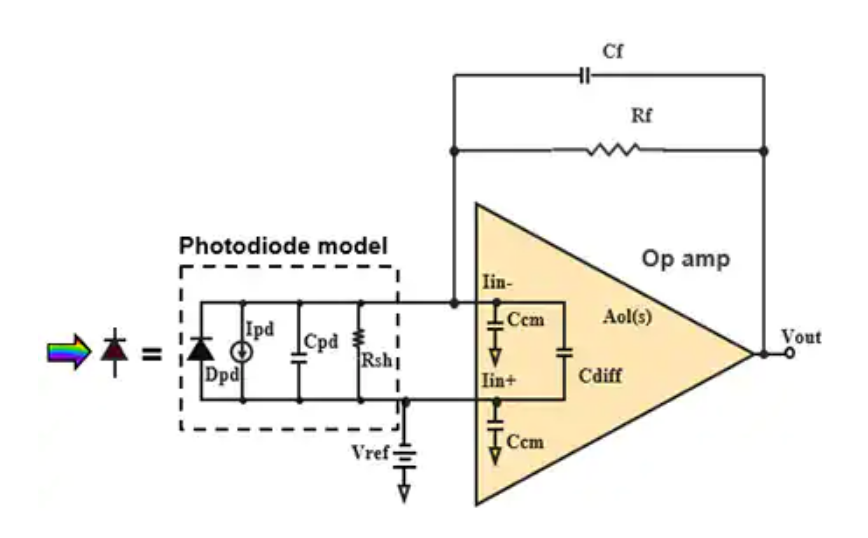
The Berkeley Packet Filter (BPF) is a technology used in certain computer operating systems for programs that need to, among other things, analyze network traffic. It provides a raw interface to data link layers, permitting raw link-layer packets to be sent and received.[1] In addition, if the driver for the network interface supports promiscuous mode, it allows the interface to be put into that mode so that all packets on the network can be received, even those destined to other hosts.
